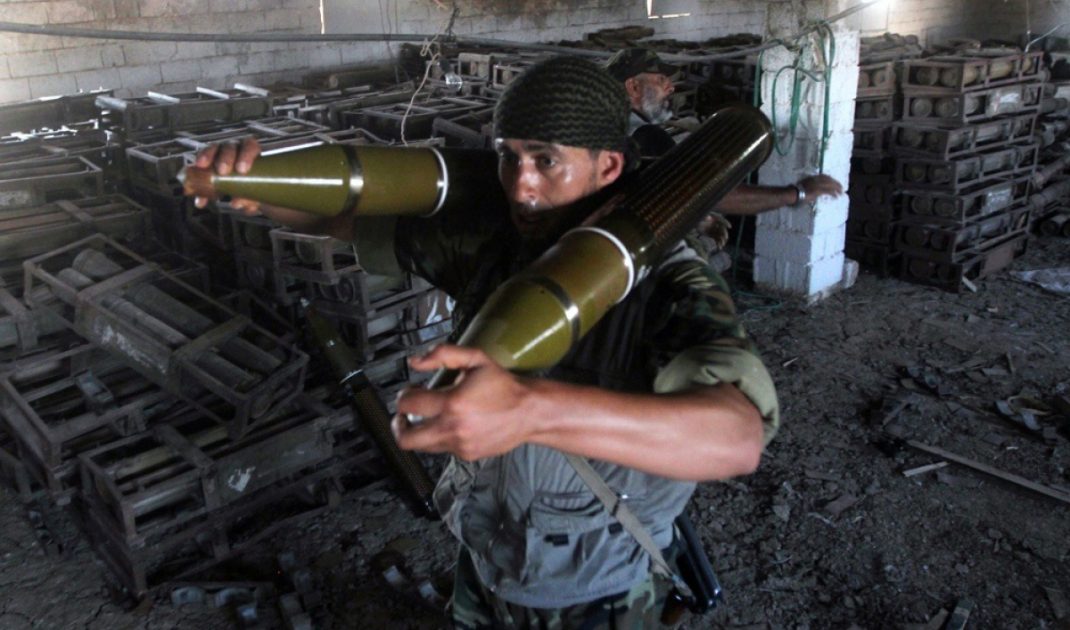By Emily Estelle
Escalating national and municipal power struggles in Libya are undermining the UN peace process and sidelining moderate factions, setting the country on a path toward renewed civil war.
Khalifa Haftar, the would-be strongman who controls eastern Libya, rejected the UN framework on December 17 and signaled his intent to take control of the country.
On the same day, gunmen assassinated the mayor of Misrata city, a moderate who had pushed for peaceful resolution from within the anti-Haftar camp.
Early signs of armed mobilization by multiple factions foreshadow the potential abandonment of the peace process, setting the stage for Libya to return to open conflict that will further destabilize the region and strengthen Salafi-jihadi groups.
Background
December 17, 2017 marked the second anniversary of the signing of the UN-brokered Libyan Political Agreement (LPA), which established the Government of National Accord (GNA) unity government.
Opponents of the GNA argue that its mandate expired on this date. GNA supporters argue that it cannot expire because the leadership of the Libyan House of Representatives, which sought to preserve its own power, prevented the LPA from being voted into law.
Tripwires
Gunmen assassinated the Misrata mayor, Mohammed Eshtawi, on December 17. Eshtawi was an early supporter of the GNA and had faced challenges from hardline Misratan Islamist factions, including an attempt to force his resignation in May 2017. No group has claimed responsibility for his killing. Assassinations are unusual in Misrata.
Libyan National Army (LNA) commander Haftar rejected the Libyan Political Agreement (LPA) and associated institutions on December 17. Haftar stated that the LNA will now answer only to the will of the Libyan people.
- Haftar’s allies and supporters mobilized to secure his power in the east and prepare for expansion on December 17 and 18. Haftar took steps to increase his control over election centers and electoral commission offices in the east, where the LNA also held military graduation ceremonies as a show of force. Haftar supporters rallied in large numbers in the east and much smaller groups in the northwest, where support for the LNA is limited but may be growing.
- Haftar opponents mobilized in response. The Nawasi brigade, a pro-GNA force in Tripoli, dispersed a pro-Haftar rally on December 17 and criticized Haftar’s rejection of the LPA as “a coup against the democratic process” on December 18. GNA-allied Misratan militias reportedly deployed reinforcements to Sirte district in response to LNA mobilizations in the area. Misratan forces may also be taking positions near the LNA-held oil crescent region.
Assessment and Implications
The assassination of Misrata Mayor Mohammed Eshtawi eliminates a key moderating voice and raises the risk of a dangerous escalation. Hardline Islamist armed groups from Misrata have tried to remove Eshtawi through political means and intimidation previously and are most likely responsible for the assassination.
These groups oppose a political resolution with the LNA bloc and will favor a return to active conflict, likely in the LNA-controlled oil crescent region that is integral to Libya’s economic recovery.
These groups may also facilitate a renewed Salafi-jihadi insurgency by supporting groups like the Benghazi Revolutionaries Shura Council and the Benghazi Defense Brigades, which they have backed to fight the LNA in the past.
Alternately, pro-LNA actors may have assassinated Eshtawi to either remove a key interlocutor for the peace talks or to incite a backlash that would justify pursuing a military solution. This possibility would similarly benefit Misratan hardliners and lead to escalation.
Separately, ISIS may have assassinated Eshtawi as a continuation of the revenge campaign it began in October 2017, signaling an increase in ISIS’s attack capabilities and foreshadowing future assassinations in northwestern Libya.
Haftar’s rejection of the LPA is his strongest statement so far indicating that he will run for president in 2018. His position diverges somewhat from that of his political allies in the Libyan House of Representatives, who had the upper hand in the UN-led talks and avoided rejecting the LPA entirely.
Haftar will capitalize on popular frustration with the stalled peace process to consolidate his personal power, legitimize the LNA, and secure a recommended readThe General’s Trap in Libyaleadership role in the future Libyan state.
Both Eshtawi’s death and Haftar’s turn away from political resolution worsen the polarization of the Libyan political sphere. This polarization empowers armed actors that will escalate the conflict and weakens moderate factions who are willing to make compromises—albeit limited ones—in negotiated deals.
Political leadership will likely take steps to de-escalate with dialogues between eastern and western delegations, as well as domestic and international efforts to commit Haftar to a political framework.
The risk of armed escalation remains high, however. Divisions and insufficient command and control within the LNA and the Misratan bloc allow individual groups to destabilize tinderbox areas like Tripoli, southwestern Libya, and the oil crescent region.
The current UN process is unlikely to recapture momentum and place Libya on a path to stability. Turning the course requires recommended readA Strategy for Success in Libyagreater commitment and leadership from the international community, including the United States.
_____________




